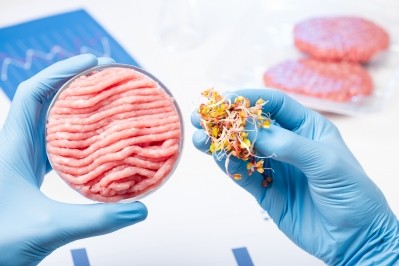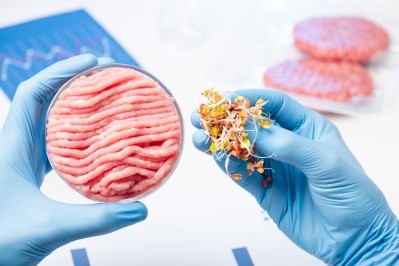Research links egg and meat nutrients with reduced risk of dementia

Choline is an essential nutrient found in various food compounds. Earlier studies have suggested a link between choline and the prevention of cognitive decline.
A new study by researchers in Finland have taken this one step further. “Our study is kind of a second part to a study that we published in 2017,” explained Maija Ylilauri from the University of Eastern Finland.
“In that study we observed associations of egg intakes with the risk of incident dementia or Alzheimer’s disease. We found that those people that ate the most eggs succeeded better in certain cognitive tests,” she told FoodNavigator.
“To find out the reason why, we wanted to look at whether choline could explain it – as eggs are very high in choline and especially phosphatidylcholine. And it seems like it may at least partly explain our findings.”
Analysing diet and lifestyle habits
Principal investigator Ylilauri and her team used data from the Kuopio Ischaemic Heart Disease (KIHD) Risk Factor Study.
Between 1984 and 1989, researchers analysed 2497 dementia-free Finnish men aged between 42 and 60 years of age. The participants’ dietary and lifestyle habits, and health in general were examined.
The key sources of phosphatidylcholine in the participants’ diet were eggs (39%) and meat (37%).
Four years after the study onset, a subset of 482 men completed five different cognitive performance tests. And 22 years later, these data were combined with dementia and Alzheimer’s disease diagnoses from Finnish health registers.
At this time, 337 men had developed dementia.
Cognitive, memory and linguistic results
“We found that higher intake of a nutrient called phosphatidylcholine was associated with a reduced risk of dementia,” Ylilauri told this publication.
The World Health Organization on dementia
Dementia is a syndrome in which there is deterioration in memory, thinking, behaviour and the ability to perform everyday activities.
Worldwide, around 50m people have dementia, and there are nearly 10m new cases every year.
Alzheimer’s disease is the most common form of dementia and may contribute to 60-70% of cases.
Specifically, the risk of dementia was 28% lower in men with the highest intake of dietary phosphatidycholine, when compared to men with the lowest intake.
“We also found that those men with the highest intake of dietary phosphatidylcholine succeeded better than men with the lowest intake in tests assessing their memory and linguistic abilities,” she continued.
Total choline and phosphatidylcholine intakes were also linked with better performance in cognitive tests examining frontal and temporal lobe functioning.
Benefits for the food industry? ‘Time will tell’
Acknowledging this association between phosphatidylcholine intake and cognitive health begs the question: Could the nutrient be used as an ingredient in processed food products?
“I cannot think why that would not be possible,” the study author told this publication. “However, it is early to say whether that would make those products any better, or healthier, compared to other products.”
For Ylilauri, ‘the future will tell’ if food manufacturers can benefit from this research or not. “At this point, we need much more research to confirm this finding.
“Even better, we would need experimental studies to say something about the causality – as our study was an observational one.”
Such a study would mean splitting a group of participants into two, whereby one group would eat two eggs per day while the other ate no eggs. “Then after a while, we could run tests to see if there is was a difference in cognitive capacity between these groups,” she explained.
Should we all start eating lots of meat and eggs?
Despite the researchers’ positive correlations between the essential nutrient and cognitive health, the study lead said there is no need to start eating excessive amounts of eggs or meat.
“A varied diet that is high in vegetables, fruit and berries, contains wholemeal cereals, oils and moderate amounts of animal products is a good base for a healthy diet," she suggested.
“Our study is a hint that may help to prevent or delay the onset of dementia even though we do not know yet where this novel finding may lead.
“There is no cure for the most common cause of dementia, Alzheimer’s disease, and every little piece of information may help in the long run which makes our study valuable.”
Source: American Journal of Clinical Nutrition
Associations of dietary choline intake with risk of incident dementia and with cognitive performance: the Kuopio Ischaemic Heart Disease Risk Factor Study
Published online: July 30 2019
DOI: https://doi.org/10.1093/ajcn/nqz148
Authors: Maija P.T. Ylilauri, Sari Voutilainen, Eija Lönnroos, Heli E.K. Virtanen, Tomi-Pekka Tuomainen, Jukka T. Salonen, Jyrki K. Virtanen

























